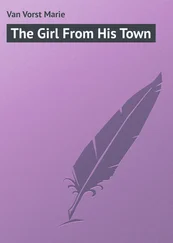'Yes, sir,' Pucetti said and hung up.
Brunetti waited. He should have thought of the doctor long before this, as soon as Rizzardi had told him the results of the autopsy. A doctor would have treated them all: the girl, the mother, the other children, perhaps even Rocich himself. How else would the man have known the doctor's name?
After only a few minutes, Pucetti called back with the doctor's first name, Edoardo; his address, in Scorze; and the phone number of his surgery.
Brunetti dialled the number and, after seven rings, got a recorded voice asking him to describe his problem and leave his name and number, and the doctor would call him back. 'Describe my problem,' Brunetti said while he waited for the machine to click to recording mode. 'Dottor Calfi, this is Commissario Brunetti from Venezia. I'd like to ask you some questions about patients of yours. I'd be very grateful if you would call me here at the Questura.' Brunetti gave his direct number and hung up.
Which of the family were his patients? Did he know that the girl was infected with gonorrhoea? Did her parents know? Had he any idea how she might have contracted the disease? As Brunetti ran through the list of questions he wanted to ask, his thoughts turned to the doctor who had cared for his family when he and his brother were children. As he recalled him, his mother slipped back into his memory, for she had always stayed with him those few times he had been sick as a child. She had always brought him mugs of hot water, lemon and honey, telling him it was nature's best way to fight a cold, or flu, or just about anything that went wrong with him. To this day, it was the remedy he insisted on using with his own children.
His reflections were interrupted by a call from Signorina Elettra, who, with thinly veiled contempt for the ease with which the Department of Public Instruction allowed its files to be 'accessed', told Brunetti that both of the Fornari children were excellent students, the son already accepted at the Bocconi Business School in Milano. He thanked her for the information, got up, and went down to the officers' room in search of Vianello, who had chosen to accompany one of his informants the day before when she spoke to a magistrate and had thus been unable to accompany Brunetti to the nomad camp.
When Brunetti turned into the final flight of steps, he saw Vianello at the bottom. 'You coming up?' Brunetti asked.
'Yes’ the Inspector answered, starting up the steps towards him. 'I'd like to know what happened when you went out there.'
As they walked slowly back to Brunetti's office, he told Vianello about his visit to the camp, concluding with his phone call to the doctor. Vianello listened closely and, when he was finished, complimented Brunetti for having thought to call the tow trucks.
Brunetti was flattered that Vianello saw the humour, as well as the ingenuity, of this.
'And you think she heard you?' Vianello asked.
'She must have’ Brunetti answered. 'She was standing just behind the door: we were less than two metres from her.'
'If she understands Italian.'
'One of the children was there, too’ Brunetti explained. 'They're more likely to speak it.'
Vianello grunted in acknowledgement and followed
Brunetti into the office. As he took his seat, the Inspector said tiredly, 'There are times when I find myself wishing we had more tow trucks’
To do what?' Brunetti asked.
'Move them somewhere else.'
Brunetti stopped himself from staring, but he did say, 'I've known you to say kinder things, Lorenzo.' At Vianello's shrug, he added, 'I've never heard you say you don't like them.'
‘I don't.' Vianello shot back, voice entirely level.
Surprised to hear not so much the statement as the heat with which Vianello gave it, Brunetti didn't bother to disguise his reaction.
Vianello stretched his legs out in front of him and appeared to study his shoes for a moment, then looked at Brunetti and said, 'All right: what I said is an exaggeration. It's not that I particularly dislike them, more that I don't particularly like them.'
'It still sounds strange to hear you say it,' Brunetti insisted.
'And if I said I didn't like white wine? Or spinach? Would that sound strange?' Vianello asked, his voice moving up a notch. 'And would your voice have that same air of disappointment that I'm not thinking the proper thoughts or feeling the proper sentiments?' Brunetti declined to answer, and Vianello went on. 'So long as I say that I don't like a thing, an object, or even a movie or a book, it's perfectly all right to say it. But as soon as I say I don't like Gypsies, or Finns or people from Nova Scotia, for God's sake, all hell breaks loose.'
Vianello glanced at Brunetti, giving him the opportunity to say something if he chose; when he still remained silent, the Inspector went on. ‘I told you, I don't feel any active dislike towards them; I simply feel no active sympathy.'
'There are wiser ways to express your lack of feeling’ Brunetti suggested.
His words might have been ironic, but the tone was not, as Vianello clearly heard. 'You're right’ the Inspector answered, 'that's what I should say: it's the acceptable way to talk. But I think I'm tired, tired to death, of always having to be careful to express the right sympathies, of always having to make sheep's eyes and say pious things whenever I'm confronted with one of life's victims.' Vianello considered this and then added, 'It's almost as if we were living in one of those Eastern European countries, years ago, where you had one way to speak publicly and a different way to speak honestly.'
'I'm not sure I follow.'
Vianello looked up and met Brunetti's eyes. ‘I think you do.' When Brunetti looked away, the Inspector continued, 'You've listened to enough people, the way they say all those things about how we can't have bad feelings and have to accept minorities and respect their rights and be tolerant. But as soon as they've finished saying it, if they trust you, they say what they're really thinking.'
'Which is?' Brunetti enquired mildly.
'That they're fed up with watching this country turn into a place where they don't feel safe and where they lock their doors when they run next door to a neighbour's to borrow a cup of sugar, and whenever the prisons are full the government says some noble words about giving people another chance to insert themselves into society and tosses the doors open to let the killers out.' Vianello stopped as suddenly as he had started.
After what seemed like a long time had passed, Brunetti asked, 'Will you say the same things tomorrow?'
Vianello shrugged and finally looked across at him and said, 'Probably not.' He smiled and gave a different kind of shrug. 'It's hard, never to say these things. I think I'd feel less guilty about thinking them if I could admit to them once in a while.'
Brunetti nodded.
Vianello gave himself a shake, much in the manner of a large dog getting to its feet. Then, his voice steady with friendship, he asked, 'What do you think's going to happen?' He sounded entirely normal, and Brunetti had the strange sensation that he had just watched Vianello's spirit slip back into his body.
‘I have no idea,' Brunetti said. 'Rocich is a ticking bomb. The only way he knows how to deal with anything is by hitting at it. The boss or the leader, or whatever he is, is too powerful for him to try going up against. That leaves the woman and the children.' He hesitated an instant, but then decided that he would say what he was thinking, 'and he'd be violent even if he weren't a Gypsy.'
‘I agree,' Vianello said.
‘I don't want to call attention to the woman. Can't call her in here for questioning, can't go back there and try to talk to her.'
'And so?'
'And so I wait for this doctor to call me. And after he does or I get tired of waiting for him to call, I go back and talk to the Fornaris again and have another look at their apartment.'
Читать дальше





![Theresa Cheung - The Dream Dictionary from A to Z [Revised edition] - The Ultimate A–Z to Interpret the Secrets of Your Dreams](/books/692092/theresa-cheung-the-dream-dictionary-from-a-to-z-r-thumb.webp)






